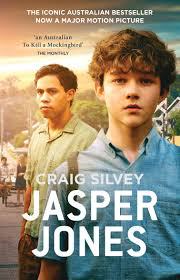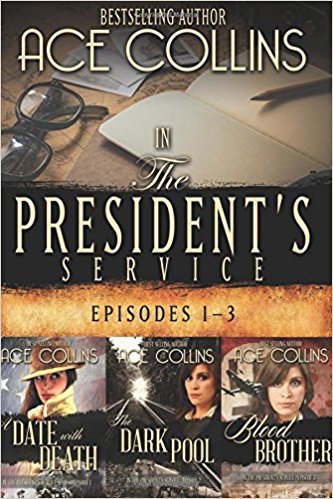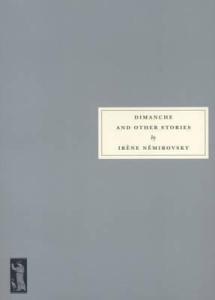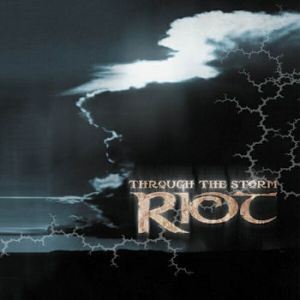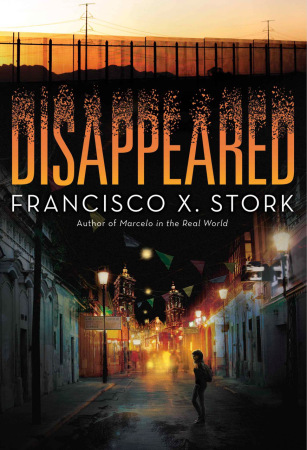
As devoted fans of Francisco X. Stork, we were excited to learn about Disappeared, the latest in his growing collection of novels for young adults. Garnering acclaim from many corners of the book world, Disappeared brings to life the heart-pounding story of Sara and Emiliano Zapata, a pair of siblings from Juárez, Mexico, who are thrown into peril as Sara delves into the unsolved disappearances of young women and Emiliano stumbles into criminal activity.
At Latinxs in Kid Lit, we advocate for strong and authentic representation of Latinx characters. There is much to praise in Francisco’s body of work, which includes The Last Summer of the Death Warriors, The Memory of Light, and Marcelo in the Real World. When Francisco agreed to answer questions about Disappeared, as well as other aspects of his writing life, we could not have been more thrilled!
Latinxs in Kid Lit: Welcome, Francisco! Thank you for taking the time to chat with us!
Francisco X. Stork: Thank you! I’m delighted to be here.
LiKL: You have publicly stated that the creative impulse for Disappeared flowed partly from your response to the recent surge of anti-immigrant/ anti-Latinx sentiment taking place in the United States. In this novel, how did you manage the dual challenge of representing these often disheartening realities, yet offering young readers a gripping story?
FXS: It ultimately boils down to creating believable characters that readers identify with and care about. If the story is to work, that is, if the story is to pull the reader into its world, then there must be something in the characters and something in the adversity which speaks to or touches the reader in a personal way. Often this is a recognition that what the characters are experiencing is something that the reader has experienced also. It could be that the experience was hidden in the reader and he or she is putting words to the experience for the first time. Books about disheartening realities can be gripping if there are heroes in the story that we can identify with. And by “heroes” I mean frail human beings like us who struggle to muster up what is best in us.
LiKL: In Disappeared, your depiction of Mexico and, in particular, Ciudad Juárez, is likely to come as a revelation for many U.S. readers. While you do show characters engaged in activities widely associated with Latinx culture, such as a quinceañera, you also complicate the picture by placing them along a full range of economic classes and professions, including newspaper journalism and information technology. You also shine a spotlight on Mexico’s problems with criminal violence and corruption. Talk about incorporating these complex, and sometimes contradictory, elements in a tightly plotted novel.
FXS: The idea here was to be as true as possible to reality. The reality of Mexico happens to be very complex, just like the reality of the United States is complex. If I were to show only the good side of Mexico, or a simplistic view of Mexico, I would be doing a disservice to Mexicans, to the reader, and to myself. The best antidote to stereotype is complexity. Hatred reduces the person or the object hated to a caricature. The beauty of good literature is that it can destroy hatred by taking us to a place where caricature doesn’t work because it doesn’t keep our interest, it doesn’t keep afloat that “suspension of disbelief” that is needed to keep on reading. It’s wonderful how the literary and the moral join forces in a good book.
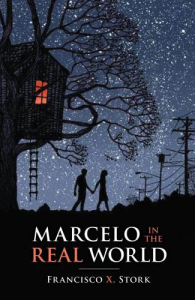

LiKL: You have made a big mark through your explorations of intersections between varied Latinx experiences and the difficult terrain of depression and other mental health challenges and cognitive differences. This is evident in Marcelo in the Real World, whose main character is on the autism spectrum, and in The Memory of Light, which is about a girl fighting the demons of suicidal depression. You are also one of the contributors to Life Inside My Mind: 31 Authors Share Their Struggles, an anthology of personal stories about mental health issues. Why is it important to you to write about mental health issues, and how do you as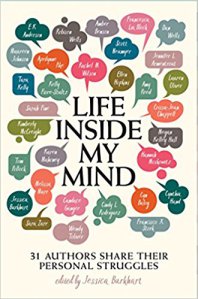 a creator stay focused on your projects, all the while managing the challenges of depression?
a creator stay focused on your projects, all the while managing the challenges of depression?
FXS: I decided to write about things like cognitive disorders and depression and suicide attempts only after I felt that I could do this in a hopeful way—in a way that would give me, if I were reading the book, the courage to keep on living. All my books are deeply personal, not necessarily in an autobiographical sense, but in the existential sense that through them I grapple with my own ultimate concerns about what it means to be a human being. I’ve always treasured the experience of finding the soul of the author behind the story that is being told—that sense of here is someone I can trust because she has felt what I am feeling. So that is what I hope the reader finds in the books that deal with mental illness. I am fortunate to have found, with the help of a doctor, the right medication and the right dosage that allows me to work and to try to be useful to others. Also, I have had many years to work on the right perspective on my illness, one that is a balance of acceptance and fight, of being kind to myself and challenging myself with realistic goals and ideals. A difficult balance that takes constant effort even if never fully attained.
LiKL: At Arthur A. Levine Books, an imprint of Scholastic, your editor was Cheryl Klein. It’s obvious that Cheryl loved working with you, because she often writes and speaks about the satisfying process of editing your novels. Check the index for her recently published The Magic Words: Writing Great Books for Children and Young Adults and you’ll see that Marcelo in the Real World is referenced 23 times! We would love to hear a bit from your side of the writer-editor equation. And for the writers among us, please throw in some tips regarding the writing life and the process of taking a book to the finish line.
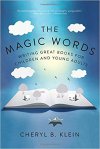 FXS: Finding Cheryl Klein was either a blessing or very fortunate depending on your world view. Writing is both solitary and communal and on the communal side my writing got exactly what it needed when it got Cheryl. Her editorial genius complemented all my writing lacks while allowing me to remain true to my writing voice and my writing vision (and reminding me of that voice and vision when I strayed). Yes, there were many times when the editing process was very hard and even at times discouraging but I never lost faith that Cheryl wanted what was best for the book and for the future reader and that kept me going. What I would like to convey to young writers is that they do all they can to enjoy the actual process of writing, of being alone with the work, and have patience with regards to the results they hope to attain. Those results may or may not come, but the process of creating a work that is beautiful and true is still worth the effort. Most of all, find a way to tell your story that is unique to you. Finding that uniqueness takes a lot of honesty and it takes a lot of practice and all the mistakes and rejections that you get will only make you a better writer and a better person if you see writing not as the publication of a book or the recognition that comes with it but as a way of life you are called to live.
FXS: Finding Cheryl Klein was either a blessing or very fortunate depending on your world view. Writing is both solitary and communal and on the communal side my writing got exactly what it needed when it got Cheryl. Her editorial genius complemented all my writing lacks while allowing me to remain true to my writing voice and my writing vision (and reminding me of that voice and vision when I strayed). Yes, there were many times when the editing process was very hard and even at times discouraging but I never lost faith that Cheryl wanted what was best for the book and for the future reader and that kept me going. What I would like to convey to young writers is that they do all they can to enjoy the actual process of writing, of being alone with the work, and have patience with regards to the results they hope to attain. Those results may or may not come, but the process of creating a work that is beautiful and true is still worth the effort. Most of all, find a way to tell your story that is unique to you. Finding that uniqueness takes a lot of honesty and it takes a lot of practice and all the mistakes and rejections that you get will only make you a better writer and a better person if you see writing not as the publication of a book or the recognition that comes with it but as a way of life you are called to live.
LiKL: What are you reading right now (YA or otherwise)? What YA books would you recommend to a writer who wants to write books for that age group?
 FXS: I’m re-reading Rudolfo Anaya’s Bless me, Ultima. Rudolfo Anaya is in many ways the father of Mexican-American literature and there is so much to learn from him about the presentation of the Mexican-American experience in a novel. One of my favorite books I always recommend to YA writers is The Book Thief by Markus Zusak because, well, there’s an author who found a way to tell an interesting story about a serious situation in a unique way. But I would also encourage YA writers to read all kinds of books, not just YA. Read fiction and non-fiction works that have nothing to do with what you are writing and you will be surprised by how they ultimately do. Read especially those books where the author’s soul touches yours.
FXS: I’m re-reading Rudolfo Anaya’s Bless me, Ultima. Rudolfo Anaya is in many ways the father of Mexican-American literature and there is so much to learn from him about the presentation of the Mexican-American experience in a novel. One of my favorite books I always recommend to YA writers is The Book Thief by Markus Zusak because, well, there’s an author who found a way to tell an interesting story about a serious situation in a unique way. But I would also encourage YA writers to read all kinds of books, not just YA. Read fiction and non-fiction works that have nothing to do with what you are writing and you will be surprised by how they ultimately do. Read especially those books where the author’s soul touches yours.
LiKL: Lastly, we can’t let you go without asking what you’re working on next and when we can expect to see it in print.
FXS: I didn’t intend to do this when I was writing Disappeared, but I am interested in following Sara and Emiliano as they make their way in the current United States. I’m not sure when you will see it in print. I want to get it right and give the book all the time it needs.
 Francisco X. Stork is the author of Marcelo in the Real World, winner of the Schneider Family Book Award for Teens and the Once Upon a World Award; The Last Summer of the Death Warriors, which was named to the YALSA Best Fiction for Teens list and won the Amelia Elizabeth Walden Award; Irises; and The Memory of Light, which received four starred reviews. He lives near Boston with his wife. You can find him online at franciscostork.com and @StorkFrancisco.
Francisco X. Stork is the author of Marcelo in the Real World, winner of the Schneider Family Book Award for Teens and the Once Upon a World Award; The Last Summer of the Death Warriors, which was named to the YALSA Best Fiction for Teens list and won the Amelia Elizabeth Walden Award; Irises; and The Memory of Light, which received four starred reviews. He lives near Boston with his wife. You can find him online at franciscostork.com and @StorkFrancisco.
For more on Francisco’s books and writing life, check out the following interviews:
“One Thing Leads to Another,” YALSA
An audio chat on Publishers Weekly KidCast
Share this:
- Share
